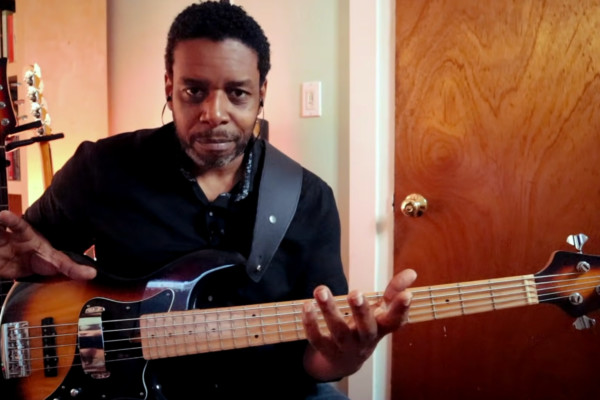How To Structure Limited Practice Time

Q: I work a “real job” – as in four 10-hour days a week. I get up at 3:15 am Tuesday through Friday, commute to work, put in my 10 hour day, plus a half-hour for lunch, and by the time I get home from my afternoon commute, it can be as late as 6 pm. I’m usually pretty tired, as you can imagine, and have enough energy to fix something to eat – but I’m really struggling to get in some decent practice time after that on those four days. Any more than an hour is pretty darned difficult, and some days I don’t even have energy for that much, as I really need to hit the sack by 8:30 PM – 9:00 PM at the latest.
I have plenty of time to practice on my 3-day weekends, of course – but I’m wondering if you have some suggestions on how to make the best use of my week night shed time.
Just FYI, on weekends I spend 40 minutes on technique drills I picked up from a Todd Johnson DVD (these are a good warm up, too), 20 to 30 minutes of working with “Sight Reading for the Bass” by Ron Velosky, 20 – 30 minutes of working through your book “The Improviser’s Path”, working on specific tunes from one of the Real Books for 30 minutes, as well as transcribing from various jazz CDs (like your “Trios” CD) – that’s the basic “must-do” practice scenario on the 3-day weekends.
If you were in my position (and thankfully you’re not) how might you structure your very limited weeknight practice time?
A: The first things to occur to me are this:
- There are tons of good articles relating to this topic here at No Treble. Here’s one I wrote (about 8 years ago?!) that relates to the struggle of solid day job / a career in music.
- My other thought is that, if we were speaking in person, I’d ask what your goals are for the instrument?
You didn’t phrase your question in a way which makes me think that you have dreams of quitting your job and traveling the world playing bass. If that were the case, I’d likely suggest you take a long hard look at your goals and do the most you can to maximize the acquisition of that dream (recognizing that circumstances always alter cases and I don’t know your circumstances).
I used to have a job driving an AAA service truck in LA with exactly those hours. Ten hours a day (usually more like 12-13), four days a week. You absolutely will not have energy left to practice with enough focus to get much out of it on any days that you are working. This you know. What I wonder is how much you realistically expect to pound into your three days a week. Your only real option, if you just must practice more, is to practice before you leave for work (and possibly add an extra session to your days off as well?) That said, here are some varied thoughts, many of which relate to specific levels of devotion you may or may not possess.
I don’t want to discourage you at all, but one thing I learned during that time was that if I wanted to really focus on my playing and development, then I had to change my life because my life wasn’t facilitating my real goals. Much of what we work on demands repetition and muscle memory. That muscle memory has a strong preference for daily attention. I’ve long said that even 20 minutes a day is better than five hours once a week.
This is why I would want to clarify what your goals are for the instrument. It sounds like you’re doing very good work on your days off and shedding good material and doing it with intention (thank you for working through my book, by the way!). I can’t think of a way to alter that regimen beyond extending the amount of time but that can be unrealistic depending on your life and also depend on your attention span. I know that if I forced myself to practice for 3 hours, my brain would likely check out after 1 or 2. The most I would recommend is that you add an additional 30-60 minutes, separate from your primary practice regimen, to either continue working through anything that has your attention or to add something new to the mix (transcription?).
If you are 100% determined to work hard at the music and are determined to really make it happen, I’d suggest waking up 30 minutes earlier and giving yourself a solid 20-30 minutes of shed time before you start your day. It’ll get your brain going and, more importantly, you’ll be less likely to blow it off after a very long day of work. Additionally, you will likely assimilate the information more quickly as you won’t be exhausted but, rather, freshly caffeinated and ready to hit it. Set yourself up the night before. Decide what you are going to work on, lay it all out, get geared up so you don’t have to do anything but make some coffee, sit down and play until it’s time to get ready.
You are already waking up at 3:15 am (brutal!) It’s hard to imagine suggesting that you get up and shed before that but, I doubt there’s any way that you could really make the time worth it to practice after a 10+ hour work day, commute, dinner, etc… Your brain will shut down and it would likely be inefficient practice anyway, so that leaves the time before work. Yikes…
The only other options that come to mind are:
- Find a group to play with on one or more of your days off. Supplementing shed time with actual music making time is a huge boon. Put those ideas into action!
- Readjust your realistic expectations. If you prioritize work and stability over musical development (as most of you absolutely should) than don’t get down on yourself if you have to relegate your music to more of a passionate-hobby-type place in your schedule. There’s absolutely nothing wrong with that.
Personally, I decided at a crucial point in my life that I’d rather be a broke musician than a rich anything else. Every job I had was disposable. If it got in the way of a (low dough) van tour, I’d quit. If it didn’t allow me enough time to shed and gig, I’d quit. There’s always another coffee shop to sling drinks in (although, I will say that playing until 2 am and then opening a coffee shop at 4:30 am was its own special kind of hell. Good thing there was an endless supply of espresso!).
That lifestyle and decision-making process is absolutely wrong for most people but I decided that it was right for me and it (thankfully) paid off, eventually. The reality is that, in order to get beyond a certain point in one’s development, there needs to be a certain, determined, come hell or high water, level of commitment. To the point where you are willing to hurt in the process because you are so focused on a goal that you can’t see anything else. That kind of commitment takes daily attention.
So, I’d:
- Be thankful that you have 3 days to shed and live (one more than most people, even if you’re working longer than most when you’re on the job) and just enjoy the process, continuing to maintain your already impressive and thoughtful practice regimen or…
- Wake up earlier and suck up the hurt so you can grab an extra few hours of practice time each week.
- Reorganize your existence (not recommended without serious consideration. Especially if you have a family unless your partner is both independently wealthy and unceasingly supportive of your dreams.)
I wish I had a magic bullet for your question, but it really comes down to this: If you want the time bad enough, you’ll make the time. Extend the shed on days off and wake up earlier on days on. I don’t see much of another way without some drastic life-alterations.
Happy shedding! Be strong…
Have a question for Damian Erskine? Send it to [email protected]. Check out Damian’s instructional books, Right Hand Drive and The Improviser’s Path.



